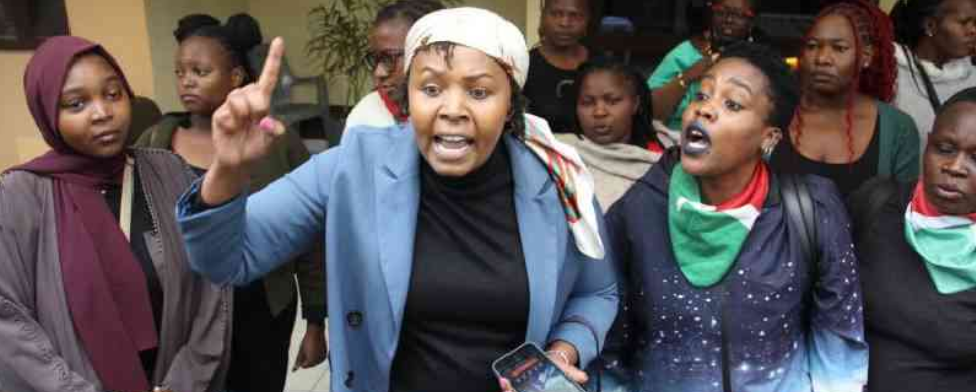Kenyan movies are coming of age
- Irungu Houghton

- Apr 1, 2018
- 3 min read
First published in the East African April 1, 2018.
Our nation’s inner soul has been laid bare in the three Kenyan made movies premiering at the Nairobi Film Festival this week. In them, we learn that he-roes and she-roes come in unexpected personalities and places. Kenya does not need Facebook, Twitter, Hollywood or Nollywood, we are a whole social network by ourselves.
The three films reflect three important social commentaries on today’s Kenya. “Watu wote” is based on the inspiring story of those brave Mandera bus passengers in 2015 who refused to divulge the Christians among them to terrorist attackers. The passengers were led by the Mandera Primary School teacher and now national hero Salah Farah. Farah succumbed to his wounds six weeks later. The powerfully shot and well-acted short movie earned its place in history as the first Kenyan movie to be nominated for an Oscar. It reminds us how much courage we may need to transform intolerance and hatred.
“Supa Modo” centers on the terminally ill 9-year-old Joanna and her community who rallies around her dream to be a super hero. Shown in Berlin recently, the movie was watched by over 1,000 German children who then took pictures of themselves wearing khangas as Supa Modo capes. Hilariously funny, the movie also touches on issues of affordable healthcare, absentee fatherhood and power of women in rallying our communities.
“New moon” addresses the looming impact of the US$3.5 billion investment on Lamu town. It is often said that Lamu town has one car, 2,000 donkeys, no modern electricity or sewage system. Once complete, the Lamu Port will attract ships half the size of the entire island. With this new moon, much will be lost, much could be gained.
Violent extremism, community action and the displacement that comes with mega infrastructural projects are very Kenyan themes right now. This is not new. The Kenyan film industry has always been dominated by fictional movies and documentaries that explore poverty, social injustice and exclusion. “Nairobi Half-Life” remains one of the most powerful indictment on inequality, criminality and unlawful police killings.
What is new, is that with the right levers the movie industry seem set to expand our creative economy dramatically. Barely six years ago, Riverwood film distributor Mwaniki Mageria was warned that we will never watch Kenyan movies. They are too poorly acted, filmed and under-resourced to compete with Hollywood, Bollywood and Nollywood. In short, just too “shao”.
He persisted and today the Riverwood Ensemble which he represents, boasts of 200 film producers. Kenyan funder Docubox now offers Kshs 200,000 for creative film ideas. “New Moon” would never have been made without their support. They now plan to get film-making onto the new primary school curriculum. The Nest Collective also continue to break new ground technically and socially. Properly supported, our film industry could make just under a billion shillings annually in under two years.
This will not happen unless we all get up under the industry. These movies and Kevin Njue’s powerful “18 hours” about paramedic Brian Odhiambo and the late Alex Madaga deserve to be seen by millions. Sadly, we have only 10 or so professional movie halls across the country and ticket costs are beyond the reach of most. Live-streaming and piracy aside, these movies will probably not be seen by more than 40,000 people at most.
To avoid isolating our creatives nationally and internationally, we need an independent film fund, to fast track policy changes to provide incentives and tax rebates, step down the over-regulation and better link our movie industry to places of learning.
Kenya is a movie making machine and we must let her breathe. Our popular culture and politics explode with great movie scripts. What about that monkey that shut down the national power grid for four hours in 2015? Or the grandmothers of Korogocho who learn self-defence to stop rapists? Or those still unexplained political murders of the 2017 Elections?
This recent batch of movies teaches us that the most powerful of our movies are those that bring out the best in us, that remind us of the empowered, engaged and ethical people who walk among us. Those that have the decency and the courage of the late Salah Farah to say, “You will have to kill all of us or leave us alone.”






Comments